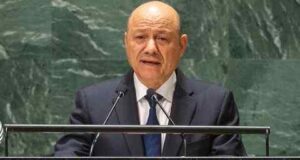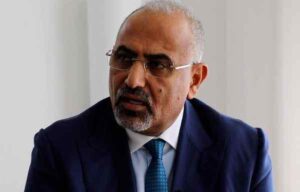Since Yemen became a unified country in 1990, it has had several presidents. Below is a table listing the presidents of Yemen in the order they served, along with the years they were in office:
| President | Years in Office | Place of Origin |
|---|---|---|
| Ali Abdullah Saleh | 1990 - 2012 | Sanhan, near Sana'a, North Yemen |
| Abdrabbuh Mansur Hadi | 2012 - 2022 | Thukain, Abyan, South Yemen |
| Rashad al-Alimi | 2022 - Present | Taiz Governorate, North Yemen |
READ ALSO: Presidents That Have Ruled South Korean Till Date
Yemen’s First President: Ali Abdullah Saleh

Ali Abdullah Saleh was born in 1942 in the village of Beit al-Ahmar, located in the Sanhan district, near Sana’a in North Yemen. His early life was modest, and he came from a tribal background that influenced his political journey.
Before leading a unified Yemen, Saleh was the President of North Yemen from 1978 until the country unified in 1990. He had a military background and held various positions within the army, which helped him gain political power in North Yemen.
Achievements:
- Yemen’s Unification: Saleh is best known for overseeing the unification of North and South Yemen in 1990, a significant achievement that brought together two regions that had been divided for many years.
- Economic Progress: During his presidency, there was a focus on developing infrastructure and expanding oil exploration, which contributed to some economic growth.
- Military Control: Saleh maintained strong control over the military, which helped him stay in power for over three decades.
Downsides:
- Authoritarian Rule: Saleh’s time in power was marked by authoritarian practices, including widespread corruption and human rights abuses.
- Internal Conflicts: His rule faced multiple conflicts, such as the Houthi insurgency in the north and the separatist movement in the south.
- Arab Spring Protests: In 2011, during the Arab Spring, widespread protests against Saleh’s rule led to his resignation in 2012, marking the beginning of ongoing conflict in Yemen.
Yemen’s Current President: Rashad al-Alimi

Rashad al-Alimi was born in 1954 in Al-Ahnum, a village in the Al-Saraf district of Taiz Governorate in North Yemen. His background is academic and political, with strong ties to Yemen’s leadership.
Al-Alimi has a long political career, having served as Yemen’s Deputy Prime Minister and Minister of Interior before becoming president.
He was a key figure in the government during Ali Abdullah Saleh’s presidency and later became involved in the internationally recognized government led by Abdrabbuh Mansur Hadi.
Achievements:
- Leadership Council: In 2022, Al-Alimi became the head of the Presidential Leadership Council, which was formed to lead Yemen through a transition period. This council is part of broader efforts to end the civil war and bring stability to Yemen.
- Diplomatic Relations: He has worked to maintain good relations with key international players, including Saudi Arabia and the UAE, which are important for Yemen’s peace efforts.
- Focus on Stability: His leadership has emphasized stabilizing the country and addressing the ongoing humanitarian crisis.
Downsides:
- Governance Challenges: Yemen remains deeply divided, with large parts of the country still controlled by the Houthis and other factions, making it difficult for Al-Alimi’s government to govern effectively.
- Continued Conflict: Despite efforts to bring peace, the conflict in Yemen continues, and Al-Alimi’s government has been criticized for not being able to end the war.
READ ALSO: Presidents That Have Ruled Kazakhstan
Yemen’s Current Vice President: Aidarus al-Zoubaidi

As of now, the Vice President of Yemen is Aidarus al-Zoubaidi. He has been serving in this role since April 7, 2022, when President Abdrabbuh Mansur Hadi transferred powers to a newly formed Presidential Leadership Council (PLC) amid ongoing conflict in the country. Al-Zoubaidi is also the head of the Southern Transitional Council (STC), which advocates for the independence of southern Yemen.
Achievements:
- Advocacy for Southern Rights: Aidarus al-Zoubaidi has been a strong advocate for the rights and autonomy of the southern regions of Yemen, working to address their grievances and push for more equitable representation.
- Political Leadership: As a key figure in the Southern Transitional Council (STC), he has played a significant role in shaping the political landscape of southern Yemen and promoting its interests on the national stage.
- Stability Efforts: He has worked towards achieving stability in the southern regions, striving to create a more secure environment amidst Yemen’s ongoing conflict.
Downsides:
- Political Controversies: His tenure has been marked by controversies, including allegations of exacerbating regional divisions and failing to fully address the diverse needs of Yemen’s southern population.
- Conflict and Instability: Despite his efforts, the region has continued to experience instability and conflict, with ongoing disputes and challenges in achieving lasting peace.
- Criticism of Governance: He has faced criticism for the perceived inefficiencies in governance and management within the southern regions, impacting the effectiveness of his leadership.
READ ALSO: Presidents That Have Ruled North Korea Till Date
Conclusion
Yemen’s leadership history has been marked by significant challenges, with each president facing their own set of issues.
From Saleh’s role in unifying the country to Al-Alimi’s efforts to stabilize a nation torn by conflict, the presidency in Yemen is a complex and demanding role.
As the country continues to struggle with internal divisions and external pressures, the leadership of its presidents will play a crucial role in shaping its future.
